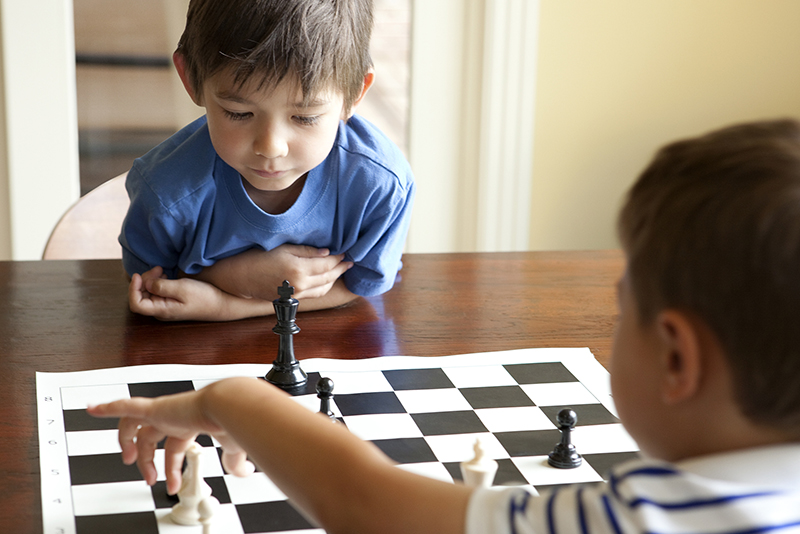Families For Life | Thinking: Preschoolers

DID YOU KNOW?
Playing with pasta pieces, especially macaroni, can be an excellent way to boost your child's acquisition of fine motor skills!
READ MORE

Play is the natural way young children learn. Even when it looks like pre-schoolers are just playing, their brains are hard at work putting together vital knowledge about the world. Here are some play ideas to support pre-schoolers’ cognitive development.
About pre-schooler play and cognitive development
Pre-schoolers are like little scientists – they want to learn how things work, and they learn best through play. Children at play are solving problems, creating, experimenting, thinking and learning all the time.
This is why play supports your pre-schooler’s cognitive development – that is, your child’s ability to think, understand, remember, imagine and work out what might happen next.
Your child’s relationships also support his cognitive development, especially his relationship with you. Play is a great relationship builder too. Spending time playing with your child sends a simple message – you are important to me. This message helps your child learn about who he is and where he fits in the world.
What to expect: pre-schooler cognitive development
Over time, with experience and practice, your pre-schooler will probably:
be able to correctly name about 4 colours and match around 12 colours to similar colours by five years
start to organise games and make friends from four years
understand concepts like ‘bigger’ and ‘taller’ from four years
start to develop a sense of humour at four years and delight in jokes and riddles by five years
still not understand what’s real and what’s pretend until after five years
have some concept of time at four years, and by five understand that the day is divided into hours and minutes.
At 4 years, a child still has a fairly short concentration span, so expect that your child might get restless or bored if an activity goes on for too long.
Your 4-year-old child is also likely to start asking tricky questions about subjects like sexuality – ‘Where do babies come from, Mum?’ – or death.
By 5 years, your child will probably sit through a full game or finish a whole puzzle – and that brings the new challenge of playing fair and learning to lose gracefully!
Starting pre-school gives your child lots to think about. There are new rules and routines that are different from those at home. This can be tiring and confusing at first. Your child might need time and lots of love and support to adjust.
Many pre-schools have programmes to help children prepare for this transition. You can also talk with your child’s teacher if you have concerns or want ideas for supporting your child through this change in her life.
Play ideas for encouraging pre-schooler cognitive development
Here are some play ideas to support your child’s cognitive development:
Play simple board games like ‘snakes and ladders’ together.
Read books and tell jokes and riddles.
Play memory card or other simple card games with your preschooler like ‘Happy Family’ or ‘Snap’.
Encourage building and construction games.
Do simple jigsaw puzzles together.
Play games that combine moving and singing – for example, ‘If You’re Happy and You Know It’.
When you’re driving or on public transport, try ‘spotting’ games – for example, ‘Who can see something green?
Learning by doing is best at this age. Your child will learn faster if you step back and provide encouragement and support from the sidelines. Try not to jump in to provide solutions. Your child will generally let you know if he needs help, so follow his lead.
A healthy family lifestyle includes limits on screen time. Screen time includes time spent watching television and playing games on computers, mobile phones and tablets.
If your child seems to be having trouble learning at pre-school or is still very upset about going to pre-school or school after several weeks, it’s a good idea to consult your health professional or your child’s teacher and talk about your concerns.
© raisingchildren.net.au, translated and adapted with permission
Explore more